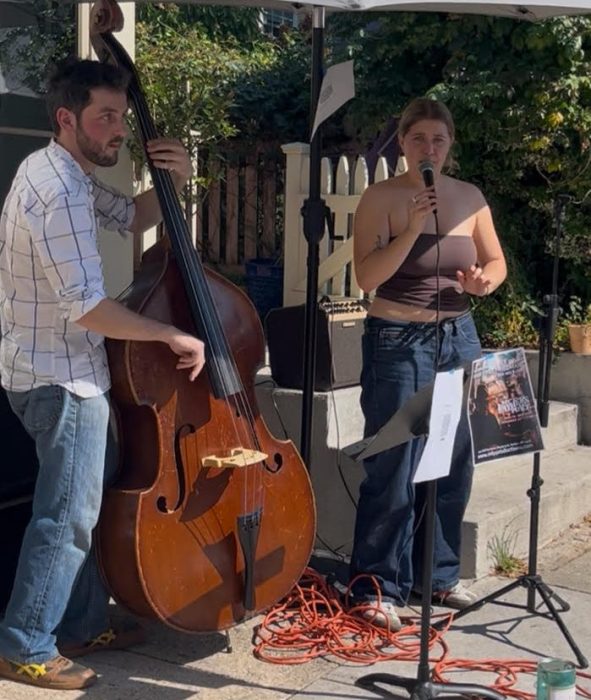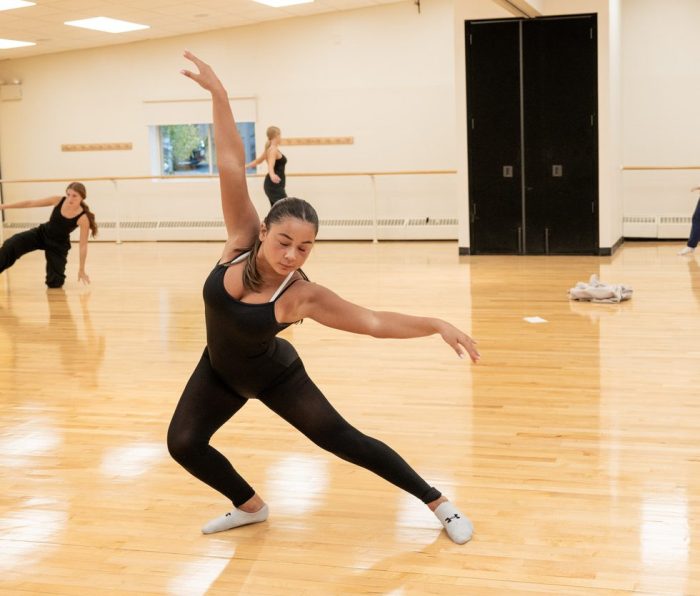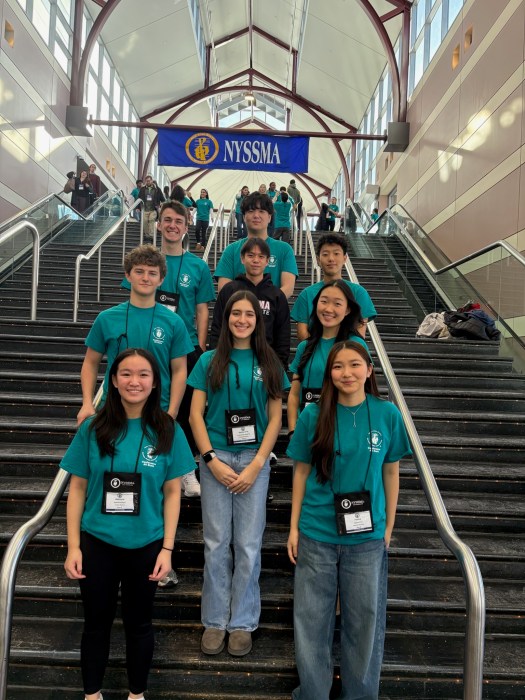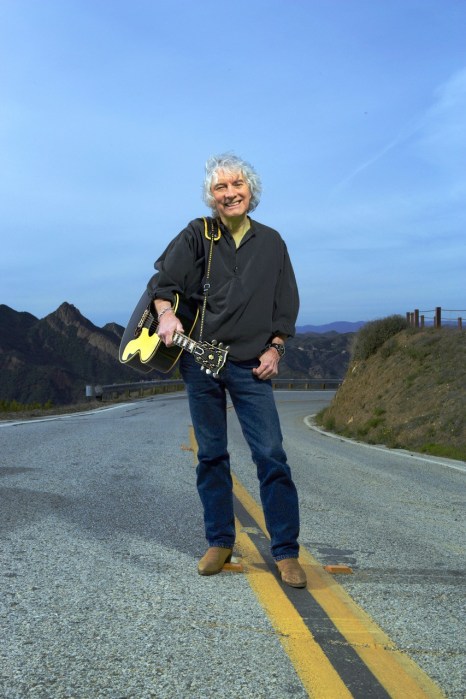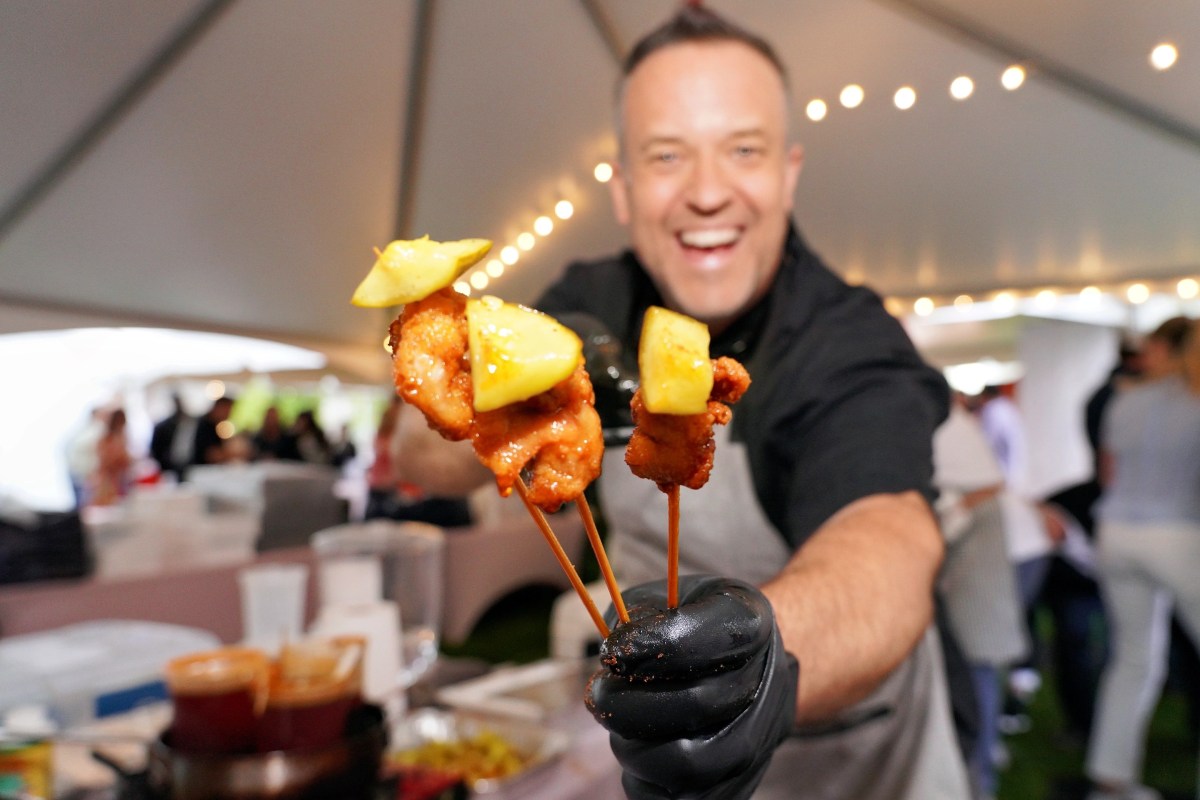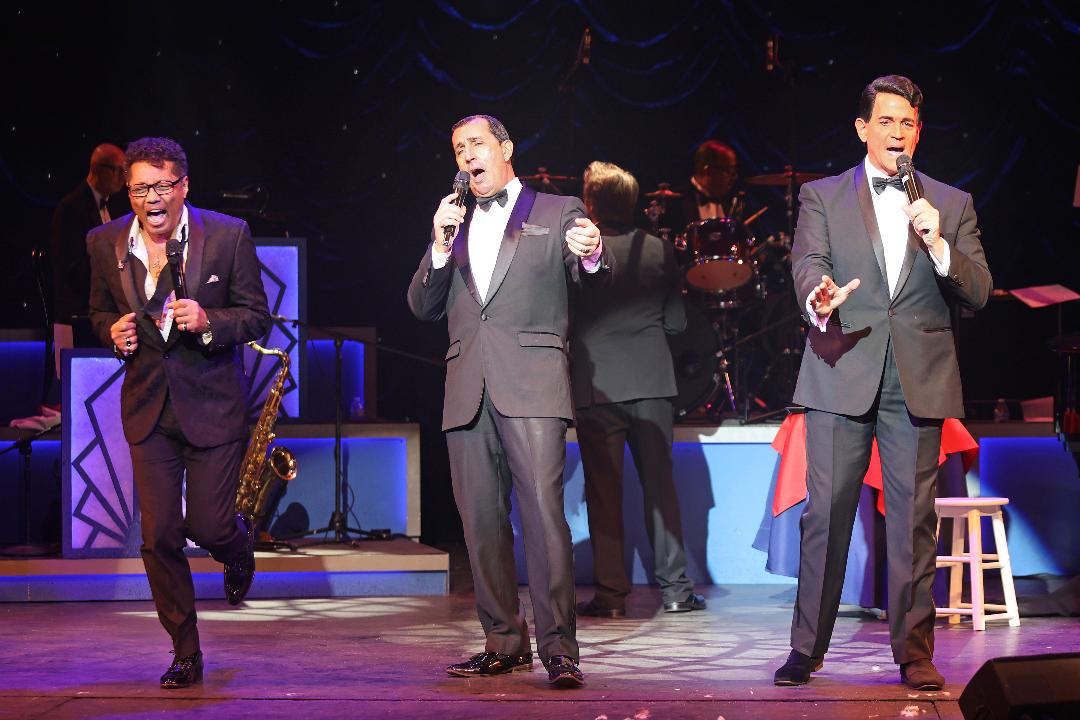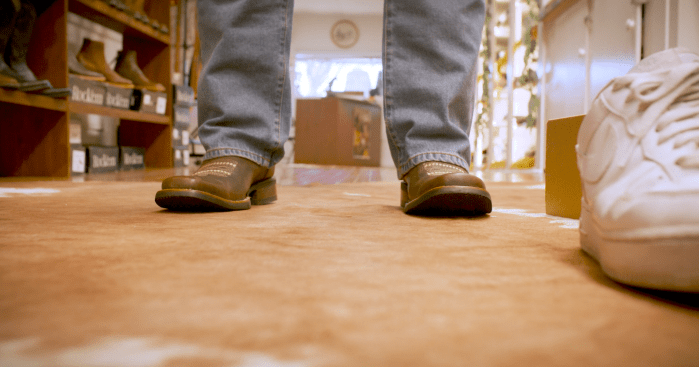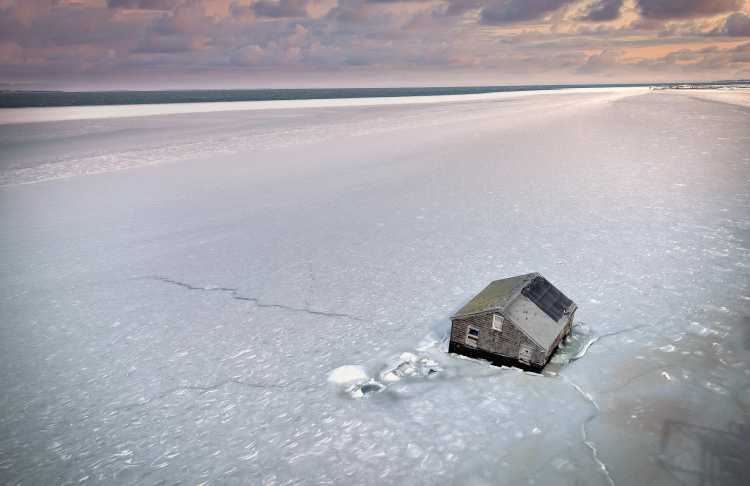Ian Anderson could have been a cop. Or a member of the Third Estate. This is what the erudite Scotsman would have you believe was his lot in life versus his current role as the longstanding frontman of Jethro Tull.
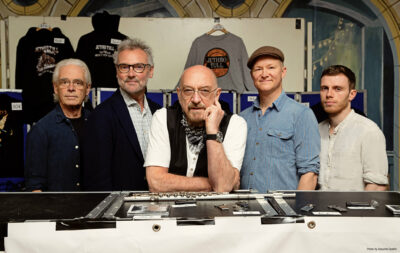
(Photo courtesy of Anne Leighton)
Currently enjoying its seventh decade of an existence that finds the prog-folk elder statesmen continuing to tour the globe and still releasing full-length albums in the face of Spotify and iTunes (this year’s Rôkflôte is the band’s 23rd studio album and follows on the heels of 2022’s Zealot Gene), Tull is making up for lost time coming out of the pandemic.
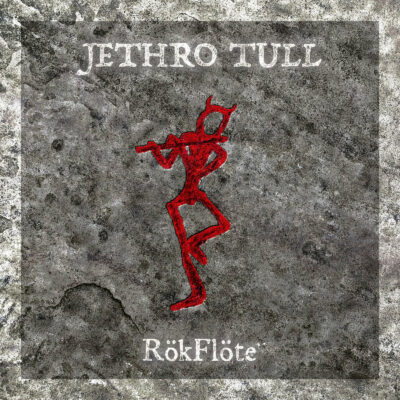
Tours have been booked and re-booked (the band finally played Finland late last year after canceling three prior times. Some fans were using tickets purchased in 2019 for the originally scheduled shows) and ever since getting back on the road in August 2021, the current line-up, consisting of Dave Goodier (bass), John O’Hara (piano/keyboards/Hammond B-3 organ), Scott Hammond (drums) and Joe Parrish-James (electric and acoustic guitars/mandolin), has been criss-crossing Europe. Among the stops they’ve made are Italy, Slovenia, Hungary, Iceland, Monaco, France, Spain, Switzerland, Turkey, Poland, Sweden, Portugal and Greece with dates in Ukraine and Russia being canceled for obvious reasons. For Anderson, maintaining momentum is crucial, whether it’s in the studio or on the road.
“My inspiration primarily these days, like everything I do when I wake up in the morning, is to pack it all in because I may not have long to go,” he said quite candidly. “And we often just get used to the idea that continuity is everything and it will be the same tomorrow as it was today and it will be the same next year as it was this year. I have to be realistic. So making a new album—and I have another new album in the works for 2024—that’s really just mostly a question of not letting things go by and finding yourself in a position where it’s too late. And the things you had planned to do, you can no longer do. That applies to booking tours, doing concerts and deciding where I’m going to have lunch tomorrow night when I get into a small German town at 10 o’clock at night. It’s that kind of thinking ahead, but realistically trying to take care of business as soon as you can.”
Click here to read about Ian Anderson’s favorite small wild cats.
Ever the intellectual seeker, Anderson’s curiosity led to Tull’s latest albums being steeped in religion in mythology. And while The Zealot Gene features biblical references throughout and has each song starting with a passage from the Bible, Anderson turned his attention to Norse mythology for Rôkflôte. It’s a creative turn he took quite seriously given the connections its had with fascist and far right movements in recent times.
“I thought it would be interesting to write something based on the texts about polytheistic beliefs,” he said. “I considered various Far Eastern beliefs and the possibility of Greek and Roman mythology. Then I thought, where did all that dissipate to? It was clear that it traveled through northwestern Europe and finally petered out in the Norse religions—mostly around the eleventh and twelfth centuries when Christianity, which had been around for a while, supplanting the belief in the multitude of gods that in many cases do have some very close parallels in Roman and Greek mythology. It seemed like a fertile ground and something I would do with a light touch because Norse mythology has given rise to some dark fascinations by a number of people in not too-distant periods of history. Nowadays, it still holds a fascination for some Nordic heavy metal bands that fool around with that kind of a thing. But most worrisome, it was part of the inspiration in the dark and quite satanic activities of one Heinrich Himmler.”
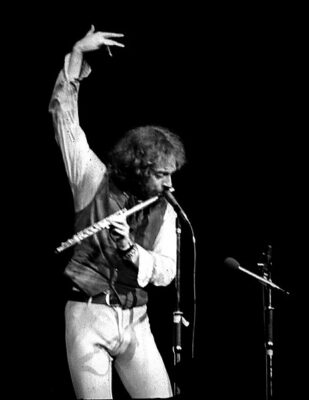
(Photo by Jean-Luc/CC BY-SA 2.0)
For Anderson, creatively pushing himself has been a constant dating back to early childhood memories of singing church hymns and folk songs in school. Yet it was not rock and roll that proved to be the musical disruptor for the young Anderson but rather the sway of his father’s own tastes.
“In terms of modern music and the days of pop music and rock and roll, the music that gave rise in its way to what eventually became the latter was what intrigued me,” he said. “It was the music of the big bands of the World War II era from people like Duke Ellington and so on who my father listened to and were the perpetrators of swing. It was far away from the very strict music of the church. Suddenly, I encountered the syncopated music of jazz, the flattened fifth and the scale, which was something which made a very easy attraction later as a teenager into black American folk music, which we call the blues.”
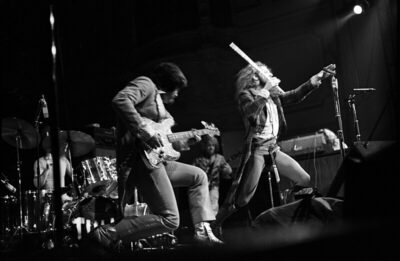
(Photo by Heinrich Klaffs/CC BY-SA 2.0)
In those early formative days, the now-septuagenerian rocker and classmates Jeffrey Hammond and John Evan started out as a five-piece blues and soul band along with future Tull drummer Barriemore Barlow. The loose group evolved into becoming a blue-eyed soul sextet before eventually settling into the four-piece line-up that recorded the band’s 1968 debut This Was and was rounded out by guitarist Mick Abrahams (who left afterwards to form Blodwyn Pig), bassist Glenn Cornick and drummer Clive Bunker. Of course, part of Tull’s singularity is Anderson’s musical weapon of choice, a major pivot he made leading up to the band’s debut when he decided to swap guitar for flute as his go-to instrument.
“I wanted to do something a bit more idiosyncratic,” he said. “So in the summer of 1967, I quit playing electric guitar and exchanged my guitar for a flute and a Shure microphone made in Chicago.”
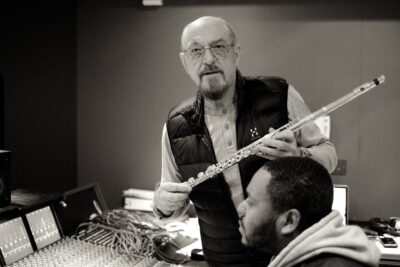
(Photo courtesy of Anne Leighton)
Fast forward to 2023 and Anderson is the sole founding member left. The current tour, “The Seven Decades,” marks the band’s return to American shores for the first time since 2019. Fans can expect a healthy cross-section from Jethro Tull’s extensive canon.
“The U.S. tour is very much pinned on the idea of how Jethro Tull have performed in seven decades,” Anderson said. “That doesn’t mean we’ve been playing for 70 years, but we started in the late ‘60s and now we’re in the 2020’s. We feature something from each one of those decades and there are a few songs that are among the heavy hitters that people will recognize. There are a few that our fans will know quite well. And there are a few that people won’t know because they are less well-visited, perhaps never played on stage before or in the case of the last two albums, two songs from Zealotry [The Zealot Gene] and two songs from Rökflöte, which is the new album. It’s a smattering really of this and that.”
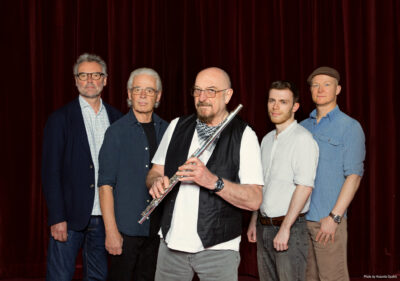
(Photo courtesy of Anne Leighton)I
With so much mileage under his belt, it’s hard to envision Anderson as being anything but the international rock star he jokingly refers to himself as given how much music has always meant to him. It’s a mistress he counsels younger performers to always keep close.
“I’ve frequently said to young fiery musicians, particularly those in classical music, is to not ever be afraid to become an amateur musician because the word amateur comes from a Latin root that means ‘to love,’” he explained. “If you love music, it can be something that rewards you through your life, even if you’re not fortunate enough to be able to make a living out of it. So after a few years of study and learning to play the violin, oboe, flute or whatever it is and the doors don’t open, don’t give up music. Music is there forever. Music is something you can continue to love and it can continue to love you as an amateur musician.”
Jethro Tull will be appearing on November 1 at the Beacon Theatre, @ the Beacon Theatre, 74th Street & Broadway, NYC. Visit www.beacontheatre.com or call 866-858-0008 for more information. The last local stop for the band will be on November 2 at The Capitol Theatre, 149 Westchester Ave., Port Chester. For more information, visit www.thecapitoltheatre.com or call 914-937-4126.




